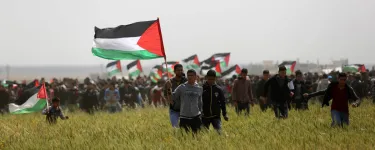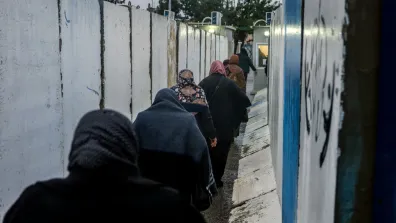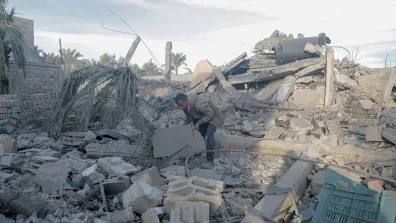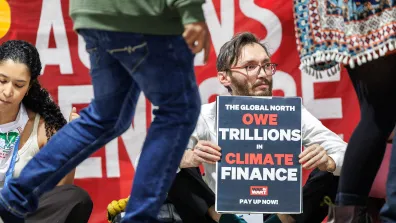Anniversary of the First Intifada in Palestine

The intifada was distinguished by widespread participation across Palestinian society: workers, women's groups, cultural associations, university students and faculty, in cities, villages, and refugee camps. Palestinian resistance was characterised by general strikes, boycotts of Israeli political institutions and Israeli products, refusal to work on Israel settlements, and refusal to pay taxes to Israel. Everyone had a role to play in strikes, protests, community care systems to organise food delivery and school lessons when the army implemented curfews.
But the uprising was met with brutal repression by Israel. Extreme violence from the Israeli army resulted in over 1200 deaths, including 230 children, and thousands more were injured by Israel’s policy of ‘might, power and beatings’, which instructed Israeli soldiers to break the bones of unarmed protestors.
Israel also imposed collective punishment on the Palestinian population, including round the clock curfews, the closure of Palestinian schools and universities, the destruction of Palestinian homes, land and crops, and the cutting of water and fuel supplies.
Israel used mass arrest and the criminalisation of all forms of political expression – including the Palestinian flag – to attempt to suppress resistance. During the course of the Intifada, Palestine had the highest incarceration rate in the world. Over 170,000 Palestinians were arrested, often for acts as small as participating in a march or carrying a Palestinian flag, with torture routinely used against prisoners. Roughly 20% of Palestinians under occupation, including 40% of men, have been through Israeli prisons, and have ‘security’ records because of it.
This was not the first time Palestinians rose up in protest. In 1936, when Palestine was still under British colonial rule, it was British forces that killed, injured, and arrested thousands of Palestinians fed up with colonialism and occupation. And it was British colonial lawmakers who instituted practices such as administrative detention – detaining people indefinitely without charge or trial – a practice which was then adopted into Israeli policy, and is still used against Palestinians today.
Israel currently holds over 5,000 Palestinians as political prisoners, including 460 held in administrative detention, in violation of the universal rights that guarantee fair trials to all people. Israel’s system of arrest and detention is not only immoral—it’s illegal.
(For more information on Israel's system of arrest and detention, please look at our online resource, and stay tuned for our new report coming out in 2020.)
As Palestinians continue to resist occupation, we must press the UK government to end its role in the violence against them by suspending all arms trading with Israel. Please join us as we continue to stand with the Palestinian people, against oppression, for freedom, justice, and equality.
Become a member of War on Want so that we can keep standing with Palestinians in their resistance against militarised repression. Your support now is more vital than ever.



